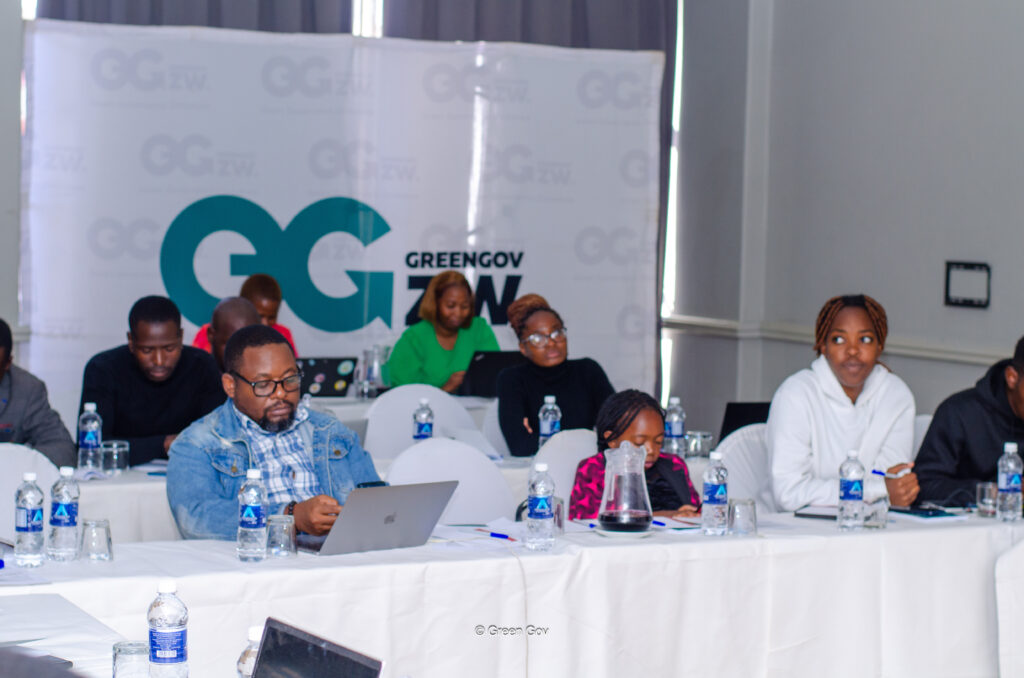In a country faced with an ongoing electricity crisis, the workshop illuminated the urgent need for a comprehensive transition toward greener energy sources. According to climate justice central, Zimbabwe’s electricity penetration rate of 44% leaves nearly three-quarters of the country’s population in the dark. This vast energy poverty raises critical questions about how the country and the continent as a whole can ensure a just energy transition that benefits local communities while minimizing environmental slaughter. The impact of unreliable energy supply is felt most acutely in marginalized communities, emphasizing the importance of inclusivity in energy policies and practices.
On August 1, 2024, at the heartbeat of Harare, Green Governance Trust facilitated a space for knowledge sharing, innovation and collaboration as diverse stakeholders were convened for the Just Energy Transition, JET Book Learning Workshop at Cresta Jameson Hotel. The event marked a pivotal moment in Green Governance Trust work around Zimbabwe’s quest for a sustainable energy future, bringing together authors of the book, policymakers, youth representatives, development organizations, and community leaders to engage in critical discussions about energy access, environmental sustainability, and socio-economic equity.
With this backdrop, the workshop aimed to ensure that no one is left behind in the transition toward sustainable energy solutions. The presence of diverse voices highlighted the critical nature of collaborative dialogue in shaping the future of Zimbabwe’s energy landscape. Among the key speakers, was Zvidzai Maburutse the Country Representative for Oxfam in Zimbabwe and Joseph Mhasvi the research and documentation officer at Zimbabwe Youth Council underlined the necessity of integrating various youth perspectives into the pursuit of a just energy transition.
Mhasvi’s emphasis on energy literacy and skill development resonated strongly with many participants, insisting on the contributions that young people can make in addressing climate challenges. He advocated for organized youth participation groups in community-based renewable energy initiatives, envisioning a future where youth are at the forefront of the decision-making processes that will shape their lives and the environments in which they live.
Innovative Youth in Energy Solutions
One notable aspect of the workshop was its focus on innovative local solutions to pressing energy issues. Alluwaine Manyonga’s introduction of the Chigubu Lantern illustrated how local creativity can offer practical responses to energy needs, particularly in rural areas where access to reliable electricity remains limited. Innovations such as this not only demonstrate the potential of local ingenuity but also underscore the importance of fostering a green economy that can adapt to and overcome Zimbabwe’s unique challenges.
The Youth Caucus
The Youth Caucus in Parliament of Zimbabwe represented by Honorable Stanley Sakupwanya Chairperson of the Zimbabwe Youth Caucus, in the Youth Quota seats in the National Assembly made a robust advocacy call for greater inclusion of youth in the economic and energy sectors as a highlight of the discussions. Hon Sakupwanya explored the implications of practical education, resource utilization, and the integration of young innovators into the renewable energy economy. Through these conversations, a transformative vision emerged, one that not only seeks to enhance energy access but also fosters economic resilience and sustainability.
As GGT reflect on the insights gained it becomes clear that the path towards a sustainable energy future in Zimbabwe is not merely an aspiration but it is an attainable goal. The discussions and proposals put forth at the Just Energy Transition Workshop were guided by the research publication that was facilitated by Green Governance Trust with support from Oxfam, setting a significant milestone in Zimbabwe’s energy narrative.

